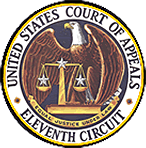
Your Case Deserves Immediate Attention - Call Hubbs Law Today
Miami Identity Theft Attorneys
Personalized Legal Representation Tailored to You
Identity theft is a form of fraud and has been a growing concern in the state of Florida. In 2022, according to the Federal Trade Commission, Florida ranked #3 in identity theft complaints in the United States with 111,221 total complaints. Also Identity Theft is the top Fraud crime in Florida accounting for 27% of all reported fraud.
Most identity theft schemes involve illegally taking, receiving, or possessing another’s personal information for the purposes of using that information for fraudulent activity. These are serious charges and carry serious consequences. The penalties imposed for convictions for identity theft can be severe and sometimes can result in mandatory incarceration. In addition, a person who was not a United States citizen could be deported from the U.S.
If you have been accused of or charged with identity theft, you should contact an attorney with experience in this area of law. At Hubbs Law Firm, our Miami identity theft defense attorneys have the experience, skill, and resources to aggressively advocate for you.
Contact us online or call us at (305) 570-4802 for a free and confidential consultation with our legal team today.
Penalties for Criminal Use of Personal Identification Information under Florida Law
Under state law, identity theft is generally charged under Florida statute 817.568, which makes it illegal for a person to “willfully and without authorization… fraudulently use, or possess with the intent to fraudulently use personal identification information concerning another person without first obtaining that person’s consent.”
The sentence a defendant can receive for a conviction of this crime depends on the circumstances. The general charge is a third-degree felony, punishable by five years in prison and a $5,000 fine.
However, the following circumstances may lead to harsher penalties:
- If the State can prove that the defendant benefited in the amount of $5,000 or more or fraudulently used the personal identification of 10-19 individuals, the charge becomes a second-degree felony, punishable by 15 years in prison and a fine up to $10,000. A person convicted under these facts is also subjected to a three-year minimum mandatory prison sentence.
- If the State can prove that the defendant benefited in the amount of $50,000 or more or fraudulently used the personal identification of 20-29 individuals, the charge becomes a first-degree felony, punishable by 30 years in prison and a fine up to $10,000. A person convicted under these facts is also subjected to a five-year minimum mandatory prison sentence.
- If the State can prove that the defendant benefited in the amount of $100,000 or more or fraudulently used the personal identification of 30 or more individuals, the charge becomes a first-degree felony, punishable by 30 years in prison and a fine up to $10,000. A person convicted under these facts is also subjected to a 10-year minimum mandatory prison sentence.
In addition to the criminal consequences, a conviction for criminal use of personal identification information can lead to immigration consequences, such as being placed in removal proceedings. Under INA 101, a person commits an aggravated felony if they are convicted of a “fraud-related offense” in which the loss to the victim “exceeds $10,000.”
Penalties for Identity Theft Charges under Federal Law
Under Federal Law, under 18 U.S.C. 1028, any person who does any of the following can face identity theft charges:
- Knowingly and without lawful authority produces an identification document, authentication feature, or a false identification document;
- Knowingly transfers an identification document, authentication feature, or a false identification document knowing that such document was stolen or produced without lawful authority;
- Knowingly possesses with intent to use unlawfully, or transfer unlawfully, five or more identification documents, authentication features, or false identification documents;
- Knowingly possesses an identification document, authentication feature, or a false identification document with the intent such document or feature be used to defraud the United States;
- Knowingly produces, transfers, or possesses a document-making implement or authentication feature with the intent such document-making implement or authentication feature will be used in the production of a false identification document or another document-making implement or authentication feature;
- Knowingly possesses an identification document or authentication feature that is or appears to be an identification document or authentication feature of the United States or a sponsoring entity of an event designated as a special event of national significance which is stolen or produced without lawful authority, knowing that such document or feature was stolen or produced without such authority;
- Knowingly transfers, possesses, or uses without lawful authority a means of identification of another person with the intent to commit, or to aid or abet, or in connection with any unlawful activity that constitutes a violation of federal law or that constitutes a felony under any applicable State or local law; or
- Knowingly traffics in false or actual authentication features for use in false identification documents, document-making implements, or means of identification
Penalties for violating Federal Law range from 5 to 30 years in prison, depending on the seriousness of the crime.
In addition, if a defendant is charged with aggravated identity theft under 18 U.S.C. 1028A, he or she will be subjected to a two-year minimum mandatory sentence that shall be run consecutively to any other prison sentence on another charge. Non-U.S. citizens may always be placed in removal proceedings based on a conviction for fraud.
Elements of Fraudulent Use of Personal ID Information
Pursuant to Florida Statute 817.568(2), to prove the crime of fraudulent use or possession with intent to fraudulently use personal identification information, the state of Florida must prove the following two elements beyond a reasonable doubt:
- The defendant willfully and without authorization fraudulently used or possessed with intent to fraudulently use personal identification information concerning the victim; and
- He or she did so without first obtaining the consent of the victim.
“Personal identification information” means any name or number that may be used to identify a specific person, including the following:
- Any name
- Postal or electronic mail address
- Telephone number
- Social security number
- Date of birth
- Mother’s maiden name
- Official state or United States-issued driver’s license or identification number
- Alien registration number
- Government passport number
- Employer or taxpayer’s identification number
- Medicaid or food stamp account number
- Bank account number
- Credit or debit card number
- Personal identification number or code assigned to debit card holder
- Fingerprint, voice print, retina or iris image, or another unique physical representation
- Unique electronic identification number
- Address or routing code
- Medical record
- Telecommunication identifying information or access device
- Another number or information that can be used to access a person’s financial resources
Penalties for Fraudulent Use of Personal I.D. Information
Under Florida Statute 817.568(2), a conviction for fraudulent use of personal identification information is a third-degree felony, punishable by up to five years in prison and a $5,000 fine. In addition, a person who was not a United States citizen will be deported from the U.S. in some situations based on a conviction for fraudulent use of personal information.
Florida law also imposes increased penalties if the pecuniary benefit, the value of the services received, the payment sought to be avoided, or the amount of the injury or fraud perpetrated is in excess of a specific amount or if the person fraudulently uses the personal identification information of multiple victims without their consent.
Under the previous theory, a defendant faces the following penalties upon a conviction:
- Second-degree felony with maximum prison sentence of 15 years and 3 year minimum mandatory sentence if $5,000 or more in pecuniary benefits and between 10-19 victims
- First-degree felony with maximum prison sentence of 30 years and 5 year minimum mandatory sentence if $50,000 or more in pecuniary benefits and between 20-29 victims
- First-degree felony with maximum prison sentence of 30 years and 10 year minimum mandatory sentence if $100,000 or more in pecuniary benefits and 30 or more victims
Defenses to Fraudulent Use
To prove the crime of fraudulent use of personal information, the state of Florida must prove beyond a reasonable doubt that 1) the defendant willfully and without authorization fraudulently used or possessed with intent to fraudulently use personal identification information concerning the victim; and 2) the defendant did so without first obtaining the consent of the victim.
There are several legal defense applicable to this charge that may apply in certain cases:
- Consent – The state of Florida is required to prove that the defendant did not obtain the consent of the victim to possess or use the personal identification information. If the alleged victim consented to your use or possession of the identification information, you may have a legal defense to the crime.
- No Intent – The state of Florida is required to prove that you “willfully” used or possessed with intent to fraudulently use personal identification information. “Willfully” is defined in the Florida Criminal Jury Instructions as meaning “intentionally, knowingly, or purposely.” Therefore, if your possession or use of another’s personal identification information was by mistake, unintentional, or unknowingly, you may have a legal defense to the crime.
- Identification – All criminal charges require that the state of Florida prove that you were the one that committed the crime. This can be accomplished by a witness identifying you in court as the person that possessed or used the personal identification information or by circumstantial evidence. In a case involving circumstantial evidence, sometimes it can be difficult for the State to prove that you were the one that committed the crime. Many times the State will try to prove the crime through documents and other evidence. If the circumstantial evidence is not strong enough to show you were the person that committed the crime, then you may have a legal defense.
- Constructive Possession – In many cases involving the charge of fraudulent use of personal identification information, the victim’s personal identification information is located in the defendant’s vehicle or home. If the evidence was located in an area where one or more persons had access to, then the State may not be able to prove that you either possessed or knew about the personal identification information.
Our Experienced Attorneys Can Fight for You
If you were arrested for an identity theft-related offense in Miami, Florida, you should immediately contact Hubbs Law Firm. It is important for you to have your case evaluated by an experienced attorney. An arrest does not equal a conviction. You may have legal defenses to your charges.
Our founding attorney, E.J. Hubbs, is Board Certified in Criminal Trial Law by the Florida Bar and has taken over 50 cases to jury trial. Our firm handles all types of fraud cases in Miami-Dade County, South Miami, North Miami, Doral, Homestead, Miami Gardens, Miami Beach, Kendall, and Hialeah, as well as other cities and areas in the Greater Miami Area.
Contact us today to make your appointment for a free consultation with our Miami identity theft lawyers; call (305) 570-4802 or contact us online.
Additional Resources
- Florida Office of the Attorney General - The Attorney General’s office handles identity theft at the appellate level. Find information on protecting your identity, reporting identity theft, and statistical information for identity theft in Florida.
- Florida Department of Safety and Motor Vehicles - The Florida Department of Safety and Motor Vehicles issues driver’s licenses in the state of Florida. Find information on reporting identity theft and how to obtain a new driver’s license if your identity is stolen.
- Federal Trade Commission - The Federal Trade Commission is a federal agency that is in charge of consumer protection. Find information on reporting and recovering from identity theft.
- Source for Free Credit Report- Visit this site to receive a free credit report.

Attorneys E.J. & Erika Hubbs
As professional Miami criminal defense attorneys, we take every case personally give every client the deliberate care it deserves. Our clients become part of our family and we fight relentlessly for their rights. Read more about us to find out how we can help you.

-
I do not have enough praise for Erika and Eric.
Zoe Gorospe -
"Erika Hubbs assisted our company in getting one of our future Venezuelan employees an 0-1 Visa. And she was successful !! Her knowledge of the industry and her determination was great asset in this lengthy and drawn-out process."Alisa H.
-
"A loved one in our family had a very complex case and was being held in Broward County Transitional Center and faced deportation... They always kept steady communication, giving us updates, and plans of action, and answering any and all questions. Even aft"Alex M.














